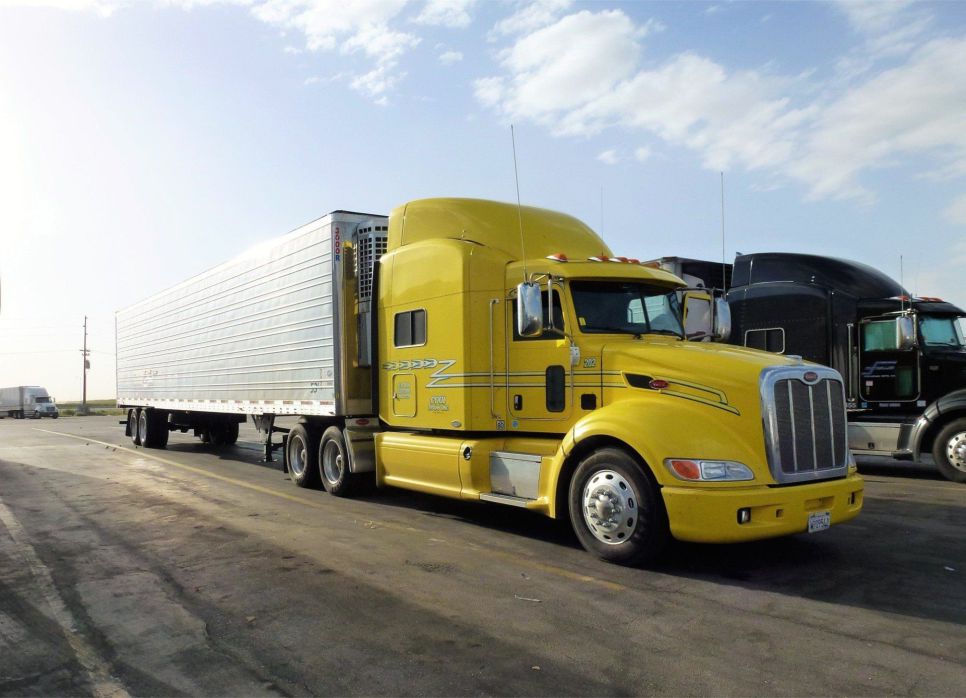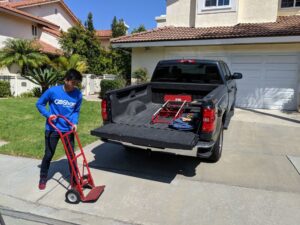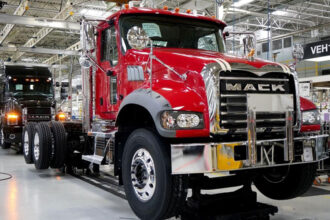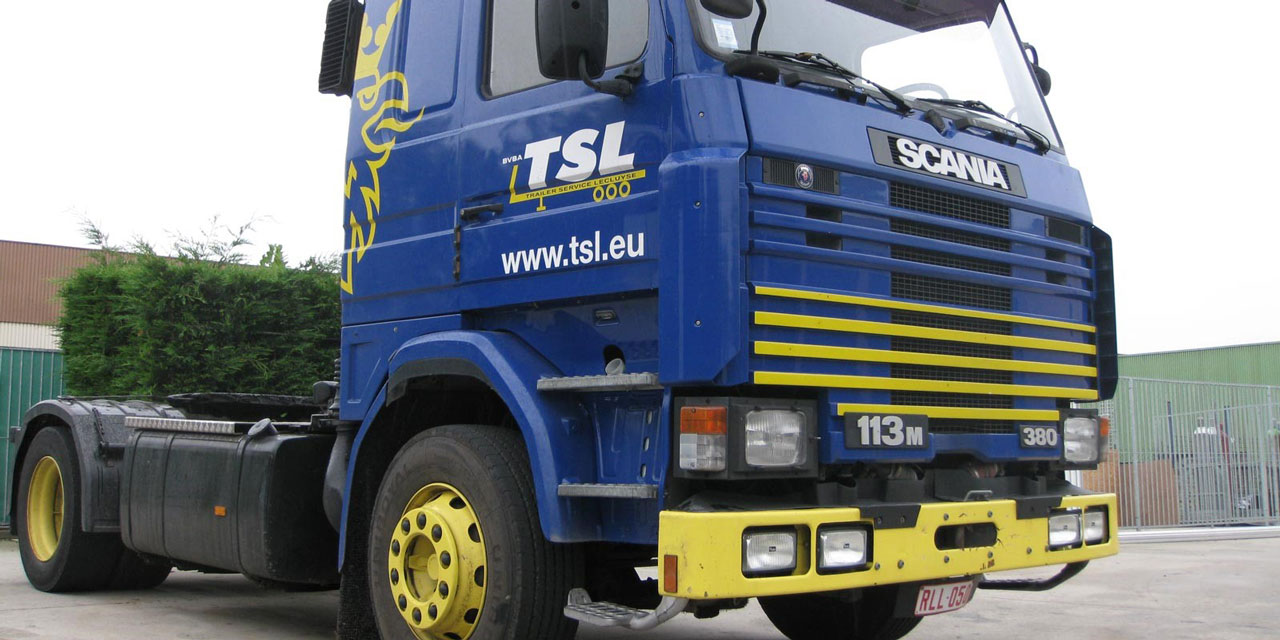Table of Contents
Are you ready to dive into the bustling world of logistics and transportation, where the Trailer Truck Business stands as a formidable force? This is a dynamic industry where the rumble of wheels on the highway signifies the heartbeat of commerce. If you’ve ever marveled at the sight of an 18-wheeler gracefully navigating the open road, you’ve witnessed the essence of this business.
The Trailer Truck Business is a realm where the movement of goods takes center stage. It’s about efficiently transporting cargo across vast distances, linking manufacturers to markets, and ensuring that products reach their intended destinations with precision. In this article, embark on a journey to explore the intricacies of this industry and, most importantly, the process of crafting a comprehensive Trailer Truck Business Plan. So, dive into the world of trailer trucks, where opportunities are abundant and success is the destination.
To write a trailer truck business plan, include:
1. Executive Summary
To write a trailer truck business plan, begin by introducing your business idea and emphasizing its uniqueness. The executive summary is your plan’s elevator pitch. It encapsulates the essence of your trailer truck business. Highlight your goals and objectives for clarity.
Craft this section to be compelling and concise, aiming to grab the reader’s attention and interest them in the full plan. For instance, imagine you’re launching a refrigerated trailer truck business. Your executive summary might begin by highlighting the rising demand for perishable goods transportation due to the growth in online grocery shopping.
2. Company Description
To construct a trailer truck business plan, delve into the backstory of your business, including its origins, mission, and core values. The company description is your opportunity to showcase your trailer truck business’s identity. Explain what sets your venture apart from competitors. Provide insights into the competitive advantages or market differentiators that will propel your business to success.
3. Market Research
To structure a trailer truck business plan, dive deep into the trucking industry, providing data on current market trends, customer demographics, and competitive forces. Market research is the bedrock of your plan. Discuss key findings from your research, outlining opportunities and challenges you’ve identified.
This section should provide a clear view of the market landscape in which your business will operate. For example, you might reveal that the demand for specialized, climate-controlled transportation services in your region has been steadily rising, driven by the flourishing pharmaceutical and food industries.
4. Organization and Management
To create a trailer truck business plan, describe your trailer truck business’s organizational structure. Highlight key personnel, their roles, and qualifications. This section is a window into your team’s capability to lead the business effectively.
Emphasize their relevant experience in the industry, showcasing the skills and knowledge that will drive your business forward. Here, introduce your COO, especially if he or she brings a decade of experience in logistics, ensuring your company’s operational excellence.
5. Services and Products
To develop a trailer truck business plan, detail the range of services or products your trailer truck business will offer. Explain the types of trailers, cargo, or specialized routes you’ll focus on. Highlight any distinctive features or offerings that make your business stand out.
For example, you might offer 53-foot refrigerated trailers with advanced cooling systems suitable for transporting pharmaceuticals, fresh produce, and other temperature-sensitive cargo. Provide a clear picture of what clients can expect when they choose your services.
6. Marketing and Sales Strategy
To prepare a trailer truck business plan, develop a comprehensive marketing and sales strategy. Begin by defining your target market and outlining strategies to engage and acquire customers. Discuss your pricing strategy, promotional efforts, distribution channels, and sales tactics.
This section should convey a well-thought-out plan to expand your business’s reach and drive growth. Consider digital marketing, partnerships, and trade shows. Emphasize leveraging social media advertising to target businesses requiring specific transport and attending industry expos to network with potential clients.
7. Funding Request
To shape a trailer truck business plan, detail your funding sources, whether it involves loans, investments from partners, or personal capital. If you need financing to launch or expand your trailer truck business, specify the exact amount required and how you intend to utilize it.
For instance, you might request $500,000 to purchase additional refrigerated trailers, expand your fleet, and meet the growing demand for your services. This section should instill confidence in potential investors regarding the soundness of your financial requests.
8. Financial Projections
To draft a trailer truck business plan, utilize historical data, if available, and provide reasoned assumptions for future growth. Present detailed financial projections, including income statements, balance sheets, and cash flow statements.
You could project that, with the planned expansion and increased clientele, your transport company expects a 20% growth in revenue in the first year. The financial projections should offer a clear picture of your business’s financial health and profitability potential over the short and long term.
9. Appendices
To outline a trailer truck business proposal, add supplementary materials that reinforce your business plan. Include the resumes of key team members to showcase their expertise. Attach legal documents, market research data, or any other relevant information that adds depth and credibility to your plan.
10. Market Strategy
To shape a trailer truck business plan, explore your marketing strategies in depth, covering branding efforts, digital presence, advertising campaigns, and customer retention tactics. Explain how you’ll adapt to evolving market conditions and stay ahead of the competition.
>>>GET SMARTER: Trailer Truck Business Checklist
11. Operations Plan
To structure a trailer truck business plan, provide a detailed operations plan that encompasses logistics, fleet management, maintenance schedules, safety protocols, and regulatory compliance. Demonstrate your commitment to operational excellence.
12. SWOT Analysis
To develop a trailer truck business plan, perform a comprehensive SWOT analysis to assess your business’s internal strengths and weaknesses and external opportunities and threats. Identify specific areas where your business excels and pinpoint those that require improvement.
13. Risk Analysis
To prepare a trailer truck business plan, conduct a thorough risk analysis, evaluating potential threats and uncertainties that could impact your trailer truck business. Develop robust risk mitigation strategies for each identified threat, showcasing your ability to navigate challenges.
14. Conclusion
To craft a trailer truck business plan, summarize your trailer truck business plan by reiterating your primary objectives and why your business represents a solid investment opportunity. Encourage readers to take action, whether it’s through investment, partnership, or support for your venture.
Recap
To write a trailer truck business plan, start with a captivating executive summary and a thorough exploration of the company description, market research, and management to lay a strong foundation. Detail your services and products, hone your marketing and sales strategies, and address financial aspects, including funding requests and projections.
Do not forget the significance of appendices to support your plan and the value of market strategies, operational planning, and strategic analyses like SWOT and risk assessments. Lastly, write a compelling conclusion to leave a lasting impression on potential stakeholders.
Through this guide, you’ve acquired the knowledge and tools to create a compelling trailer truck business plan that not only communicates your vision but also your business’s potential for growth and profitability.
With dedication and unwavering commitment, embark on this entrepreneurial journey with the assurance that your well-structured plan will serve as a guiding light, illuminating the path to success in the world of trailer trucking. Your future as a successful trailer truck business owner is within reach.



















